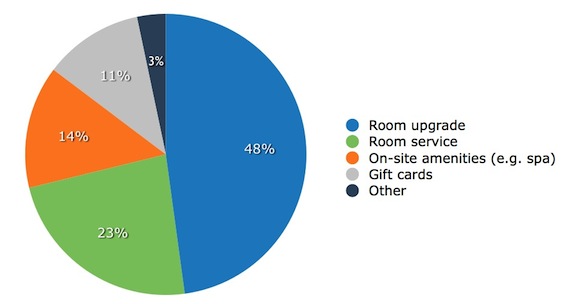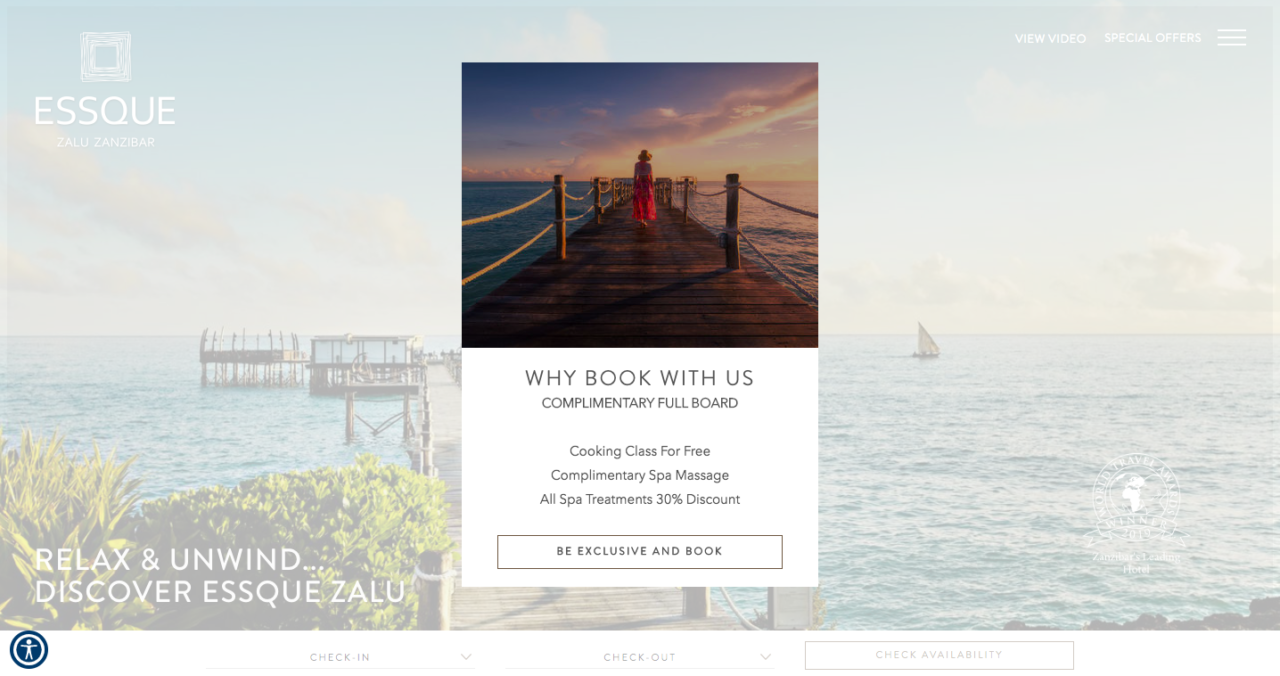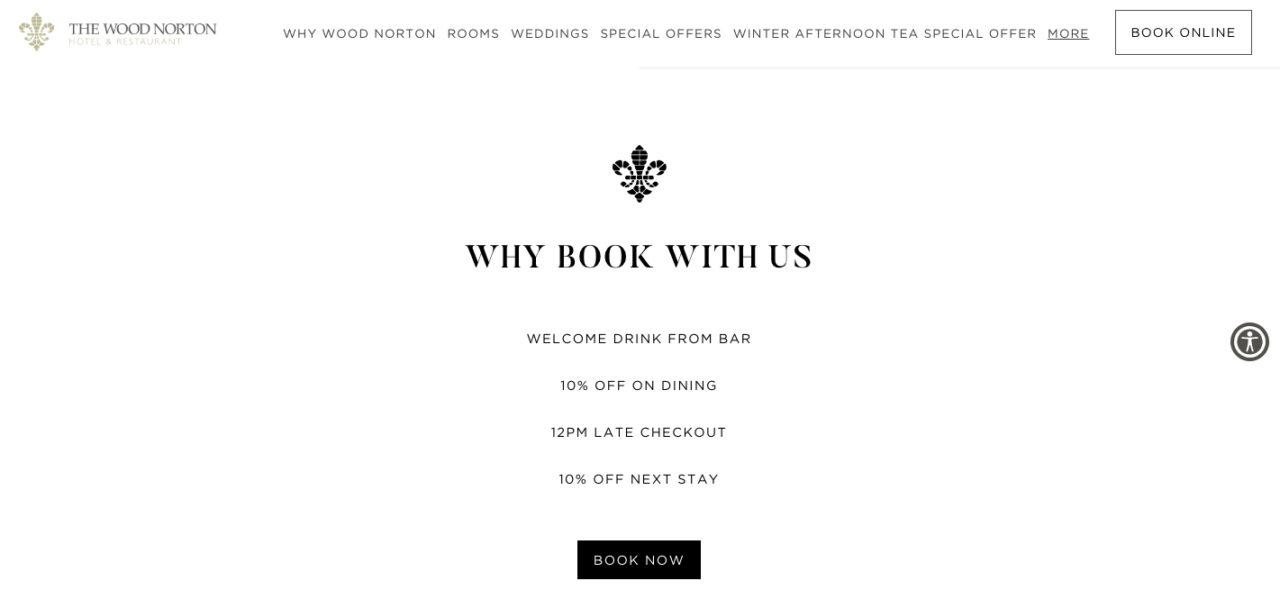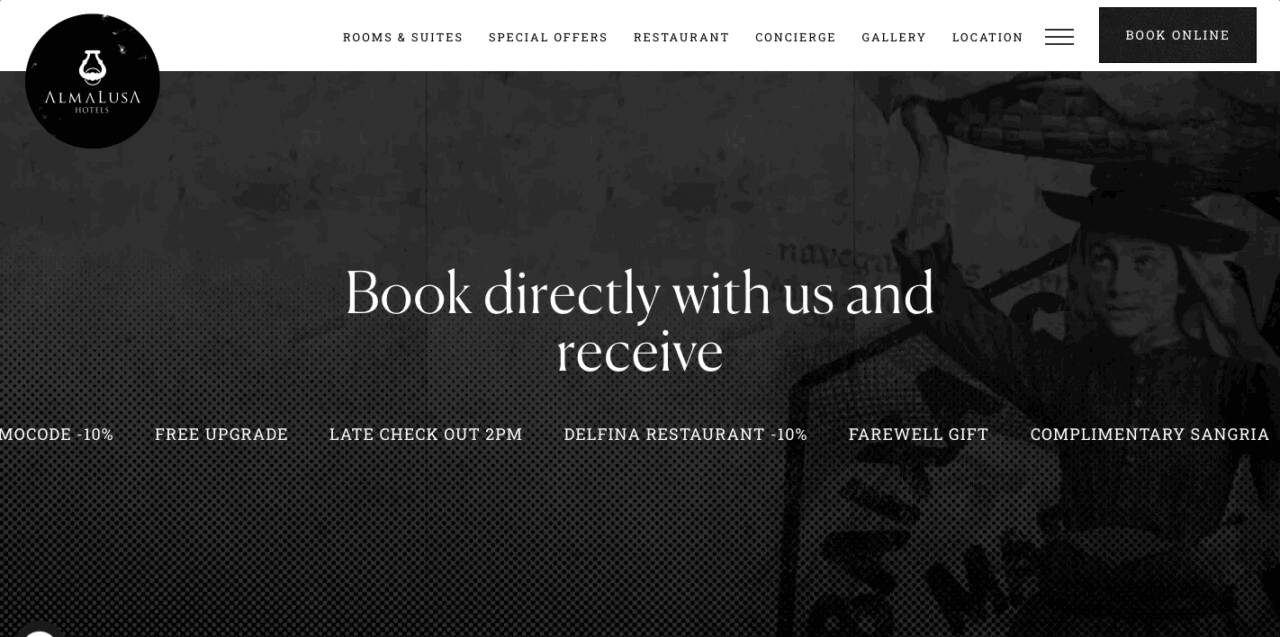
According to a recent study by Fuel and Flip.to, your hotel’s website is the most influential factor behind whether or not a travel shopper chooses to make a direct booking.
NB: This is an article from GuestCentric
And one of the most effective ways to encourage direct bookings on your website, according to a recent survey by Software Advice and Google, is by offering incentives. The ripple effect of incentives also leads to long-term benefits to your hotel, including repeat guests, increased direct bookings and brand advocacy.
In this article, I highlight how incentives have the power to vastly improve your direct results, and offer some tips on how you can effectively communicate your unique value proposition (UVP) across your website.
Your Website is Your Hotel’s Storefront
Let me start by asking you something: Have you ever looked at your website as your storefront?
If you think about it, the primary goal of having a storefront is to attract attention to a specific business. With this in mind, why don’t you start looking at your website (once and for all) as the digital storefront of your hotel too?
In today’s digital landscape, your website is the best opportunity to showcase the valuable and unforgettable experiences your property can offer. But according to Google’s Travel Trends Report, travelers visit an average of 18 websites across multiple devices before making a booking. So you need to ask yourself: “How can I make mine stand out from the rest?”
There is a widespread misconception amongst many hoteliers that simply acquiring a domain name and going live will be enough to instantly generate website traffic and direct bookings. The reality is that there is actually more work involved than simply featuring your rooms and pictures.
You need to optimize your website just like a storefront should be decorated on a weekly basis.
Achieving this requires thought, planning, and an element of trial and error. The web is now more social and dynamic than ever, and certainly not static like most hotel websites tend to be.
When evaluating your website, the home page is the best place to start because it is where your customers will first visit and experience your brand. Therefore, your message needs to be simple, clear, straightforward and strongly represent your Unique Value Proposition (UVP).
Why Incentives Increase Your Hotel’s Direct Bookings
A recent survey by Software Advice and Google of approximately 2,500 travelers reveals which perks effectively persuade consumers to avoid Online Travel Agencies (OTAs).

Nearly 50% of travelers would be most likely to make a direct reservation if a hotel offered a room upgrade as an incentive to book directly on their website. The second in line is free room service, with 23% of travelers more likely to make a direct reservation due to this incentive.
OTAs dominate the travel market for a reason. With the likes of Booking.com and Expedia offering an array of attractive packages and competitive rates which incentivize travelers to book, hoteliers need to communicate a unique value proposition that differentiates their hotel from intermediaries.
For example, your property could offer add-ons (such as complimentary breakfast, free parking, complimentary shuttle service, or free nights, etc.) as direct booking incentives.
You could also leverage all-inclusive packages where you partner with an airline or car rental service. When working with Expedia for example, hotels simply opt-in to be included in a package and Expedia will hide the rates per partner so the consumer will pay just one price.
However, many hoteliers make the mistake of not offering these incentives, and worse still, not keeping their rates competitive in comparison to OTAs.
According to a Phocuswright survey across eight different travel markets, (Australia, Brazil, China, France, Germany, Russia, the UK, and the US), 30% of travelers said they preferred OTAs because they felt they had lower rates. In the US alone, 50% of respondents said OTAs had better prices.
Why should a customer book a room on your website if it costs as much or, worst-case scenario, more than Booking or Expedia? Furthermore, why should a customer book a room with you when they can get an all-inclusive package at a better price on an OTA?
These are very important questions to ask yourself when shaping your unique value proposition. The main objective will be to leave no doubt about why booking on your website is better than booking through an OTA.
There are many ways to leverage your direct channel: exclusive occupancy, meal plan, more flexible cancellation policies, added values and special offers for direct bookers. Your unique value proposition should appear prominently and in every sales/marketing campaign.
Here are some sample evaluation questions and answers when creating your direct incentives hand-in-hand with your UVP:
- Does your property have the most famous restaurant in town? Offer a discount on dining, only for direct bookers;
- Are guests looking forward to staying at your hotel because your Spa is top-notch? Communicate that guests will receive a complimentary wellness perk for booking directly on your website.
- Is your hotel located in a picturesque neighborhood, with narrow streets? Provide a freebie to your parking service, limited to those who reserve directly with you.
5 Ways to Instantly Capture Attention and Track Engagement
Hotel guests tend to seek the authentic feel and experiences boutique hotels can provide, and this is especially true amongst millennials. Therefore, you need to ensure your website is compelling enough to inspire direct bookings.
Here is 5 ways you can capture the attention of your prospective guests and keep track of how they engage with the incentives you offer on your website:
1. Capture your visitors’ attention by using captivating calls-to-action or pop-ups where you promote your direct incentives on the hotel website. Our research shows that having a pop-up with incentives can lift up direct bookings by 40%.

2. Always add a UTM code to linked pop-up messages and calls-to-action with incentives. A UTM code is a snippet of code that you can add to the end of a URL to monitor the performance of specific campaigns and pieces of content. Using the GuestCentric Dashboards, these UTM codes will help you track any bookings made through clicks on these links.

3. Highlight the exclusive perks you offer all over the website: Home page scroll, special offers teasers, and descriptions, and booking engine loading area.

4. Grow the number of valuable guests over time by mentioning the direct booking bonus continuously and even, after the booking is made. This can be done via the pre-stay email, check-in, or post-stay email, etc.
5. Promote this incentive-driven messaging throughout every social channel, including Twitter, Facebook, and Instagram.
The Incentive for Incentivizing Your Guests
Incentives are essential to keep website visitors returning to your hotel. But remember, don’t offer a specific perk just because you heard it worked with one of your competitors. You need to evaluate your own property and create a unique value proposition that is relevant to what your hotel has to offer specifically.
There are numerous hotels now broadcasting incentives across their websites and generating results. For example, the ‘Stop Clicking Around’ campaign by the Hilton which used education to incentivize customers to book direct, generated a 90% increase in signups to the brand’s reward program.
Although it takes planning, trial-and-error, and resilience to get your incentive game aligned with what your customers are looking for, the rewards will be worth it. In the long run, you will benefit from repeat customers, stronger profit margins and, the icing on the cake — reduced dependence on intermediaries.




